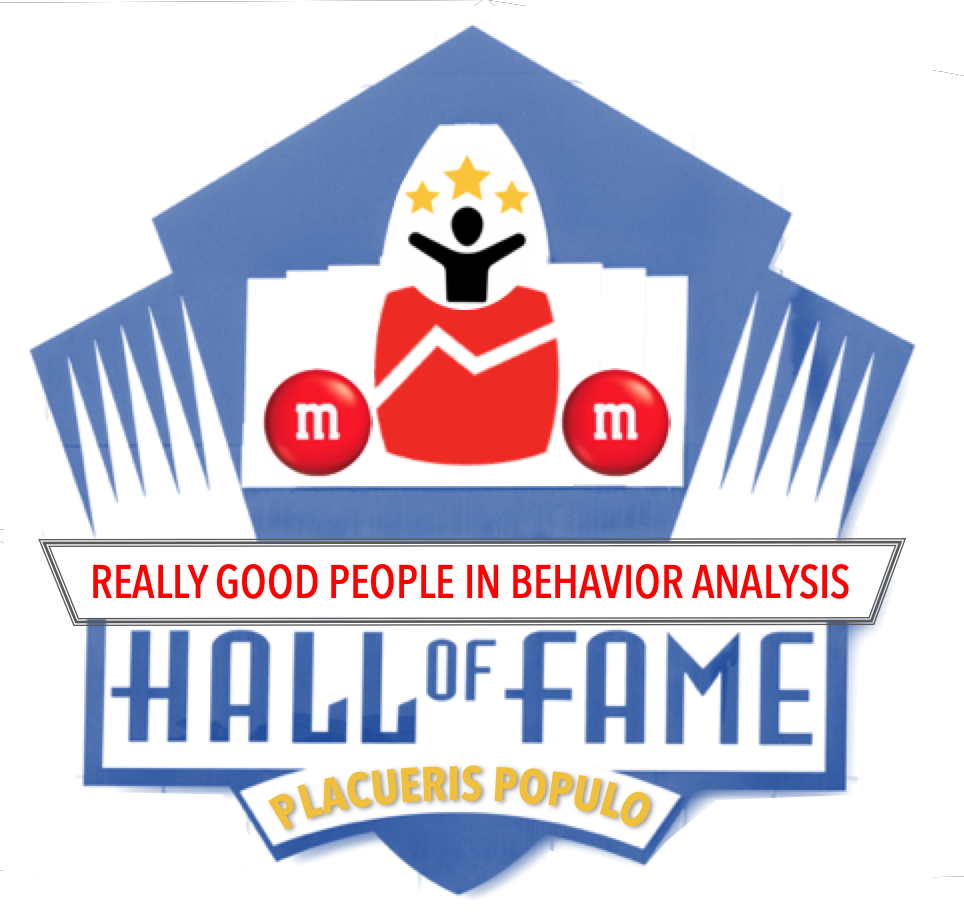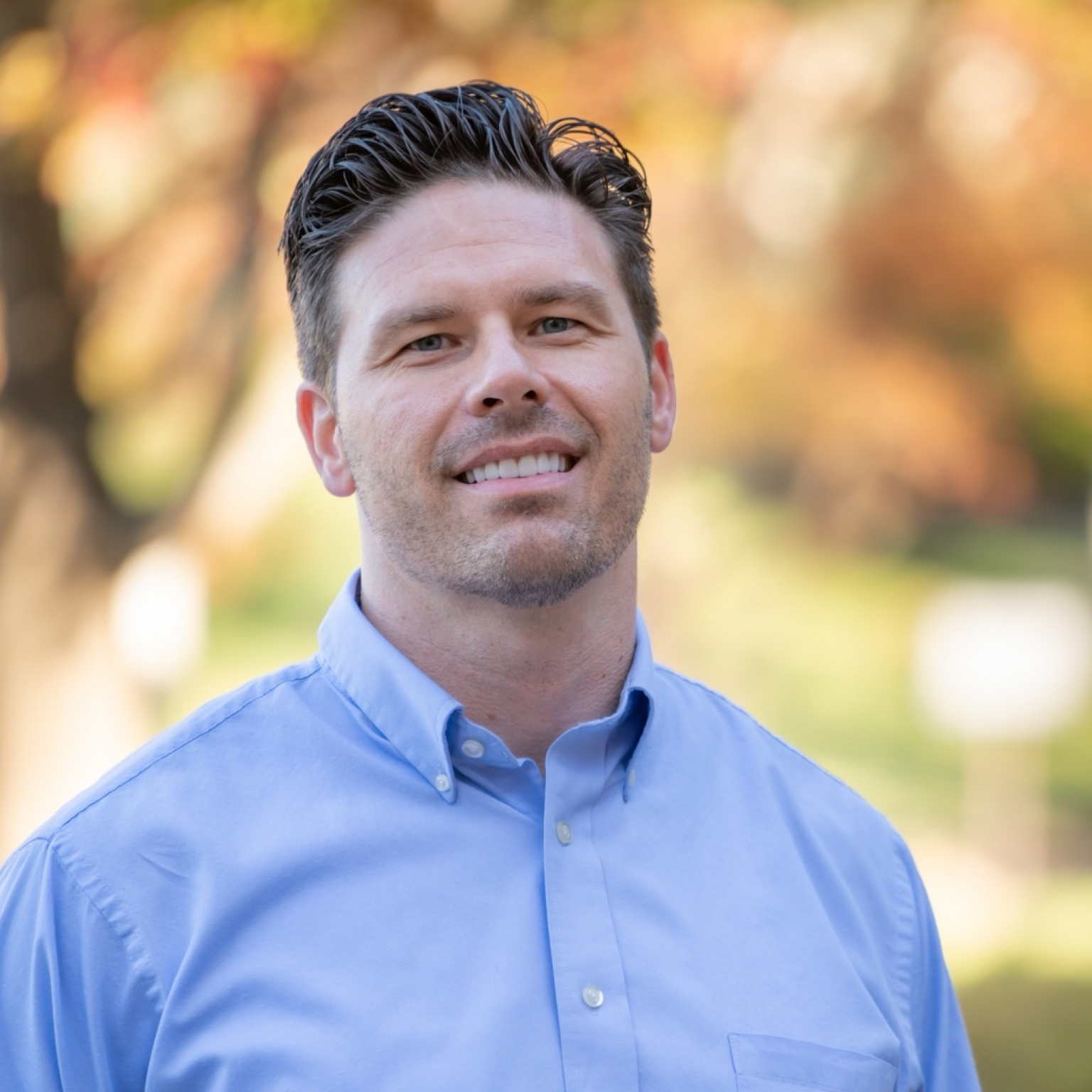A tale of supervisory munificence
by Alex Pauls, MA, BCBA (alex-pauls@uiowa.edu)
Center for Disabilities and Development
University of Iowa Stead Family Children’s Hospital

The Hall of Really Good People in Behavior Analysis is a way to honor acts of being… well, darned decent. Its inspiration is one of my guilty pleasures, NPR’s series “My Unsung Hero,” in which everyday folks relate “stories of people whose kindness left a lasting impression” (if, like me, you’re secretly sentimental, check it out). In a harsh world, it’s valuable to have models who remind us we’re all in this together. And who are these Really Good People? Sometimes they do unexpectedly big things. Sometimes their gift to us lasts only a moment (by the way, there’s good evidence that even small social interactions can have a positive impact on happiness and mental health!). The common denominator is behavioral function: how their actions make a difference to US.
Guest posts are invited! Install your favorite Really Good Person into the Hall by sharing your brief story of someone whose behavior (act of support or kindness, big or small) made a difference to you. There are no rules about what behavior to celebrate, as long as it was impactful. Contact Tom Critchfield (tscritc@ilstu.edu) with your idea.
I came to Iowa for grad school after stints as a special education teacher for adjudicated delinquents and for kids with intellectual and developmental disabilities. I didn’t know much about behavior analysis — In fact, I’d only been to two professional development seminars on it. But I knew that (1) the behavioral view of the world made sense and (2) it was really effective at reducing challenging behavior whereas other things weren’t. I also knew Iowa boasted one of the foremost clinics for severe and challenging behavior (Biobehavioral Services) so I was excited for the opportunity to spend time there.
Alas, my first training experiences in clinic made me question that decision. The supervisor I worked under did not take to me, and the clinical training did not go well. I’m unsure how others find themselves in grad school, but when you quit your job, convince your wife this is a good idea, get her to agree to move across the state, then proceed to (allegedly) suck at the thing you want to do for your new career, it’s not a great feeling.
By chance, my supervisor was sick one clinic day and suggested I reach out to another clinician to see if I could spend time in his clinic to accrue my BCBA hours.

That other clinician was Matt O’Brien. I had actually emailed Matt when I got accepted to Iowa and expressed an interest in working with him, but for various reasons we didn’t connect up. Now when I asked if I could spend time in clinic with him he kindly agreed.
I vividly remember our first case together. As we interviewed the patient and then planned our assessment, he asked me what I thought, and I suggested a brief functional analysis. He said he thought an antecedent analysis would be better and asked me if I knew what that was. I didn’t and expected to be told how I should know that already. Instead, he smiled and explained the difference between the two assessments and why one would be more valuable than the other in this situation. Though simple, that gesture, that teaching moment, meant the world to me. My supervisor was still sick, so I asked Matt if I could spend time in his other clinic. He graciously agreed. So the next day there I was, on a computer recording data, while Matt provided guidance on what difference between establishing operations and stimulus reinforcement periods.
My first supervisor suggested it might be a good idea to stay in Matt’s clinic. With Matt’s blessing, I spent every moment I wasn’t in class there, trying to learn all I could from him. In this time, I ran my first sessions of a functional analysis and functional communication training. I remember it felt so cool to see how those contingencies affected behavior in real time. I remember also feeling both confident and surprised he trusted me enough to be able to do this. These were real patients after all, and a lot was expected from these appointments.
As the semester came to a close, Matt asked if he could talk to me before clinic one day. I was worried I had done something wrong. Much to the contrary, he offered me a part-time job in his clinic. I was confused. I didn’t know a lot and I still made mistakes. I asked him why. He said, “You’re learning, good with patients, and you want to get better.” In other words, he believed in me and my abilities. He took a chance on me.

In the subsequent years he has taken more chances on me and continued to believe in me. When he double booked himself for symposium at ABAI, he offered me the opportunity to do one of the presentations (something he explained junior students seldom get to do). Following a conversation on automatically maintained self-injury, he provided the opportunity to write up a case we were working on that would become my first, first-author publication.
When I approached him with an idea for a grant I wanted to apply for, he was in full support of it and spent a great deal of his own time editing my proposal to make it a quality product. When the funders initially balked at the idea of a grad student being a Primary Investigator on a grant, Matt aggressively lobbied on my behalf and agreed to serve as co-PI—adding more work to his plate—so I could have these funds.
Certainly, while Matt’s impact on my professional life is appreciated and important, how he’s treated me as a person also resonates. He always asks about how my wife is and ensures I make time for her, despite my many professional obligations. I suffer from a myriad of health challenges, and he asks to make sure I’m okay, but also gives me agency to make my own choices about what I can do rather than assuming what my abilities are.

At my first ABAI conference, when I was scared and alone, he invited me to explore Boston with him and his peer group and made sure I was treated as an equal rather than a lesser. In contrast, my initial supervisor was also present and, let’s just say, did not extend the same treatment. Matt also presented many clinical and research items in progress as “Alex’s” or “ours” rather than his own. Mind you, I was working on them, so it wasn’t disingenuous, but I didn’t feel like the leading mind, so I remember feeling so good that he would share the credit with me. That meant the world to me and that trip is a memory I will always treasure.
In A Song of Ice and Fire, Tyrion Lannister speaks of having a soft spot in his heart for, “Cripples, bastards, and broken things.” In other words, he looks out for those who aren’t perfect or generally admired by the world. In writing this bit, this quote stuck out. I don’t know why Matt chose to believe in me and take a chance on me years ago, but I remain eternally grateful and owe the entirety of my achievements and success as a behavior analyst to him.

Pingback: Interesting Somethings (2023-2024), Indexed – BEHAVIOR ANALYSIS BLOGS